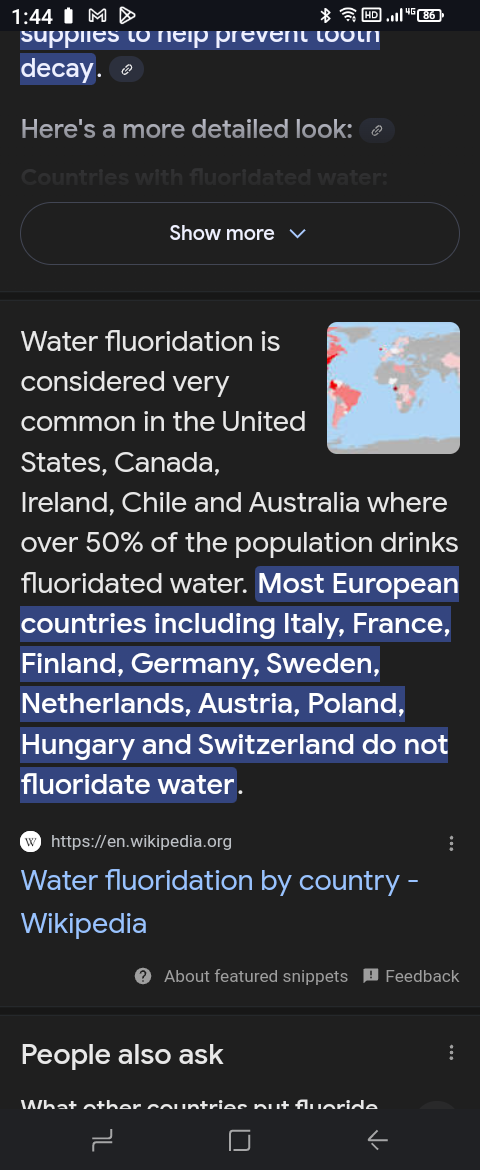I get where you're coming from, but here’s the issue—just because fluoride reduces cavities doesn’t automatically mean it’s safe to ingest over long periods. The same institutions praising its dental benefits are also historically slow to acknowledge health risks (think lead, asbestos, DDT, etc.).
The criticism isn't just ‘old studies vs. new ones.’ It’s about the fact that most of the large-scale safety studies on fluoride aren’t actually designed to detect subtle or long-term harm—especially to the brain or endocrine system. Recent, peer-reviewed research (like the studies on lowered IQ in high-fluoride areas) suggests we might be underestimating the risks.
And let’s not pretend there’s no conflict of interest. Fluoride used in water systems comes from fertilizer industry byproducts. There’s a real economic incentive to spin waste into something profitable—especially if you can sell it under the label of public health.
So yeah, maybe the fluoride levels are ‘optimal,’ maybe not. But mass-medicating the population through the water supply, especially when people can’t opt out and infants are exposed from birth, is something worth re-evaluating. Being skeptical of that doesn’t mean someone’s anti-science.

You’re right that we shouldn’t automatically apply historical cautionary tales to fluoride—but they’re still worth considering, especially when the stakes involve public health and long-term exposure. Yes, fluoride has been studied for decades, but so were lead additives, asbestos, and trans fats. Benjamin Franklin wrote about the dangers of lead in the 1700s, and yet we still had leaded gasoline into the 1990s. Awareness doesn’t always equal policy change—especially when economic convenience is involved.
As for the idea that we’d just ban fluoride if it were harmful: I wish it were that simple. We still allow artificial dyes, brominated vegetable oils, and other additives in U.S. food that have been banned in Europe due to health concerns. Regulatory inertia and industry pressure are very real forces. Just because something is allowed doesn’t make it safe—it might just mean it’s profitable or “not harmful enough” to overcome lobbying resistance.
On the IQ studies—you’re right that most of them involve higher fluoride levels than what’s found in U.S. tap water. But that’s not a get-out-of-jail-free card. Those studies raise real questions about fluoride’s neurological impact, especially during fetal and early childhood development. When the potential risk is subtle cognitive harm over years, it deserves extra scrutiny—not dismissal based on dosage assumptions. The U.S. National Toxicology Program's 2023 draft report even acknowledged potential neurodevelopmental risks, suggesting caution may be warranted even at lower levels.
Lastly, the source of fluoride does matter when it comes to public trust. If it’s being sourced from fertilizer waste, people have a right to ask questions—not just about the compound itself, but about what else might come with it (heavy metals, contaminants, etc.). Saying “it’s safe because regulators say so” doesn’t build confidence when those same regulators have approved other chemicals later found to be harmful.
And honestly, the most compelling argument I’ve heard isn’t even about fluoride’s benefits or risks—it’s about bodily autonomy. Mass medication through public water removes individual choice, and that crosses a serious ethical line. Even if the risk is low and the benefit is real, the government shouldn’t force medical decisions on entire populations without consent. That’s the core issue for a lot of people.